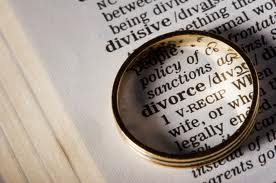
It is important, in matters of divorce, to understand the difference between “equal” and “equitable.” While some states allow for a strict 50/50 (equal) division of property in a divorce, New Jersey is an equitable division state. This means that the marital assets, usually including the marital house, are divided in such a manner determined to be fair – but not necessarily equal – by the courts.
The best way to ensure that your interests are properly protected in a divorce is to enlist the services of experienced New Jersey matrimonial attorneys, such as those at the law firm of Sarno da Costa D’Aniello Maceri LLC. We can help you understand the divorce laws of New Jersey, property division after divorce, and other matters that impact your rights.
How Do the Courts Determine the Equitable Division of Property?
Before the courts can make a determination as to the equitable division of property in a divorce, it must first distinguish between marital assets and separate property. Marital assets are generally defined as property obtained, whether by one or both spouses, during the course of the marriage and before the filing of divorce. It can also include property obtained prior to marriage but improved over the course of the marriage. Property acquired prior to the marriage or after the filing of divorce generally reverts to its original owner.
Once the courts have identified the assets that fall under the umbrella of marital property, the value of these assets must be determined. In some cases, this is a relatively straightforward matter; however, in more complex divorces, the services of an impartial appraiser or accountant may become necessary.
At the point at which the courts have assigned a value to the marital property, it must then be decided how to divide this property in a manner that is fair to both parties. In determining what is fair, the courts take several things into consideration, including:
- How long the two parties were married
- The standard of living established during the marriage
- The income of either party
- The earning potential of each party
- The tax consequences incurred by each party as a result of property distribution
- The debts of the parties
- Any written prenuptial agreement that was entered into by the parties
- The age and health of either party
- In cases involving children, the needs of the parent awarded physical primary custody
Divorces involving children are generally more complicated, impacting every part of the courts’ decisions, including the division of property. The New Jersey child custody attorneys of Sarno da Costa D’Aniello Maceri LLC can help you understand your rights and options regarding division of property whether or not you are the primary custodian of your child or children.
Of course, it is generally ideal to arrive at an agreement as to what is equitable in the division of property before giving the power to decide to the courts. Our attorneys in New Jersey can help you achieve the best possible outcome in your divorce while still ensuring that your former spouse is treated fairly.
Contact Sarno da Costa D’Aniello Maceri LLC Today
To learn more about division of property after divorce in the state of New Jersey, please contact Sarno da Costa D’Aniello Maceri LLC to speak with one of our experienced attorneys.


